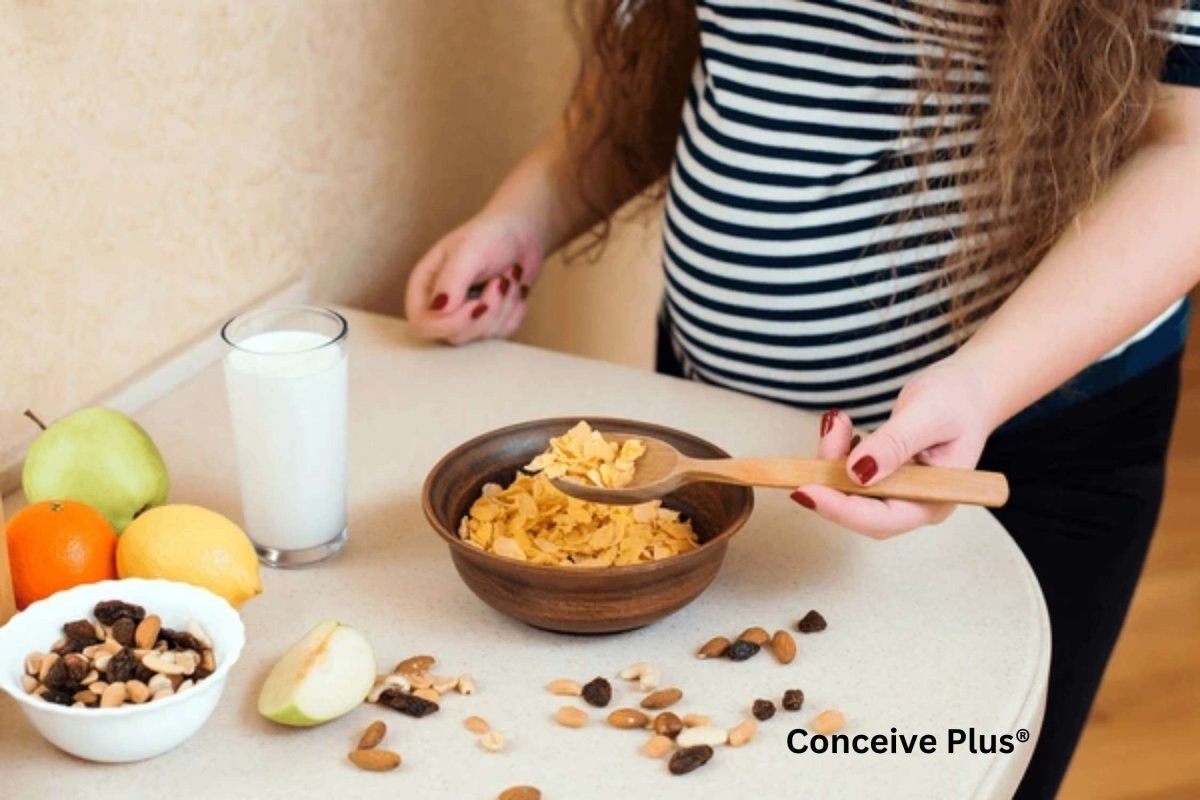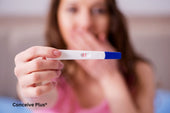How to Get Energy While Pregnant: Quick Tips

Pregnancy is a time of immense physical and emotional changes that may leave you feeling drained and low on energy. Your body works extra hard to support both you and your growing baby, and it is important to understand how you can maintain your energy levels.
So, the question that arises here is, "how to get energy while pregnant?"
You can maintain your energy levels during pregnancy with the help of some dietary and lifestyle modifications. In addition to that, your doctor may also recommend prenatal supplements to improve nutritional deficiencies, which can be the cause behind your low energy levels.
Why Do Energy Levels Drop During Pregnancy?
During pregnancy, your body undergoes significant physical and hormonal changes. Together, these changes can make a pregnant woman feel low on energy. Here is a detail on some hormonal and physical changes that a pregnant woman undergoes:
-
Hormonal Fluctuations
One of the main culprits behind reduced energy levels is the increase in hormones like progesterone and estrogen [1]. These hormones are essential during pregnancy as they support a healthy uterine lining to which the baby is attached.
However, increased secretion of these hormones during pregnancy can also lead to fatigue, mood swings, and sleep disturbances. Studies show that progesterone has a mild sedative effect that might make you feel sleepy and tired [2]. On the other hand, changes in estrogen levels can affect your metabolism and energy distribution throughout the day [3].
-
Physical Changes
During pregnancy, your heart pumps more blood, your lungs work harder, and your metabolism speeds up to support your baby’s growth [4]. These increased physical demands require extra energy, which can leave you feeling exhausted and low on energy.
Also, the growing uterus and the redistribution of blood flow can lead to decreased oxygen availability in certain parts of your body, further contributing to fatigue.
Tips to Boost Energy Levels During Pregnancy
You can maintain optimal energy levels during pregnancy by adopting a balanced lifestyle, which includes proper hydration, exercise, sleep, and mindful dietary choices.
Here are some practical tips if you are searching how can I get energy during pregnancy:
-
Staying Hydrated
Water is essential for a range of different functions in your body. During pregnancy, your body requires adequate amounts of water to support the increased metabolism and higher blood volume [5].
When you are dehydrated, you may experience signs like fatigue, headaches, and decreased concentration. Experts recommend drinking 8 to 12 cups of water during pregnancy to support body functions [5].
You can also include hydrating fruits, such as watermelon and oranges, as well as vegetables, like cucumbers and celery, in your diet to help maintain optimal hydration levels.
-
Moderate Exercise
Engaging in regular, moderate exercise can significantly boost your energy levels. Physical activity helps improve blood circulation, increase endorphins — your feel-good hormones, and enhance overall stamina.
Walking, prenatal yoga, swimming, and light stretching are excellent examples of moderate physical activities during pregnancy. Always consult with your healthcare provider before starting any exercise to ensure it’s safe for your specific situation.
-
Adequate Sleep
Quality sleep is essential for recovery and energy restoration. It is common for pregnant women to experience disrupted sleep due to physical discomfort and hormonal changes.
You can improve the quality of your sleep by establishing a calming bedtime routine. You should maintain a regular sleep schedule by going to bed and waking up at the same time each day. Create a comfortable sleep environment with supportive pillows and a cool, dark room. Also, limit screen time before bed to reduce exposure to blue light, which can interfere with your sleep cycle.
-
Foods to Eat
A balanced diet rich in essential nutrients can help you maintain energy levels during pregnancy [6]. Focus on incorporating a variety of nutrient-rich foods that support both your health and your baby’s development.
Foods to eat during pregnancy can include:
- Complex Carbohydrates: Complex carbohydrates, such as whole grains, brown rice, quinoa, and oats, provide a steady release of energy throughout the day. They help keep your blood sugar levels stable and prevent sudden spikes or drops in energy. These foods also contain fiber, which supports digestion and helps you feel full for longer.
- Lean Proteins: Lean proteins like chicken, fish, legumes, and tofu are essential for repairing tissues and supporting your growing baby. They help build and maintain your muscles and are essential for a healthy immune system. Eating lean proteins can also help you feel more energetic by serving as a consistent source of energy.
- Fruits and Vegetables: Fruits and vegetables are a source of essential vitamins, minerals, and antioxidants that help reduce inflammation and boost overall energy. These vitamins and minerals have a significant role in supporting the growth and development of the baby [6].
Fruits and vegetables also provide natural sugars that give you quick energy without the energy crash that you usually experience with refined sugars.
- Healthy Fats: Healthy fats, like omega-3 and omega-6, found in foods like nuts, seeds, avocados, and olive oil, are important for brain development in the baby and for maintaining energy levels in the mother. You need healthy fats to absorb essential nutrients from your meals. These fats also support hormone production, which is significantly important for maintaining a healthy pregnancy.
How Prenatal Supplements Can Help?
Pregnancy-related changes in the body significantly increase your nutritional requirements. This is why, even with a balanced diet, meeting all your nutritional needs during pregnancy can be challenging [6].
In such a situation, doctors often recommend taking prenatal supplements. Prenatal supplements, like Prenatal with DHA by Conceive Plus, are specially designed dietary pills to fill the nutritional gaps in your diet. These supplements provide essential prenatal vitamins and minerals that support energy levels and overall health during pregnancy [7].
These supplements also help in the development of your baby’s organs, strengthen your immune system, and prepare your body for childbirth and recovery. To further support your energy levels, consider incorporating vitamins for energy during pregnancy, as they play a crucial role in maintaining vitality and overall well-being.
The Bottom Line
Pregnancy is a duration when you need to listen to your body and adjust your lifestyle accordingly. Low energy levels are a common thing that most pregnant women experience, which leads to questions like, how to get energy while pregnant, or how can I get energy during pregnancy?
You can boost your energy levels during pregnancy by making small adjustments to your daily routine. Make sure you drink plenty of water and eat nutrient-rich healthy foods. Involve yourself in moderate exercises and get proper sleep, as it helps maintain energy levels.
Resources Used
- Content - Health Encyclopedia - University of Rochester Medical Center. (n.d.). https://www.urmc.rochester.edu/encyclopedia/content?contenttypeid=134&contentid=4
- Söderpalm, A. H., Lindsey, S., Purdy, R. H., Hauger, R., & Wit, deH. (2004). Administration of progesterone produces mild sedative-like effects in men and women. Psychoneuroendocrinology, 29(3), 339–354. https://doi.org/10.1016/s0306-4530(03)00033-7
- Mahboobifard, F., Pourgholami, M. H., Jorjani, M., Dargahi, L., Amiri, M., Sadeghi, S., & Tehrani, F. R. (2022). Estrogen as a key regulator of energy homeostasis and metabolic health. Biomedicine & Pharmacotherapy, 156, 113808. https://doi.org/10.1016/j.biopha.2022.113808
- Soma-Pillay, P., Catherine, P., Tolppanen, H., Mebazaa, A., Tolppanen, H., & Mebazaa, A. (2016). Physiological changes in pregnancy. Cardiovascular Journal of Africa, 27(2), 89. https://doi.org/10.5830/CVJA-2016-021
- How much water should I drink during pregnancy? (n.d.). ACOG. https://www.acog.org/womens-health/experts-and-stories/ask-acog/how-much-water-should-i-drink-during-pregnancy
- Jouanne, M., Oddoux, S., Noël, A., & Voisin-Chiret, A. S. (2021). Nutrient Requirements during Pregnancy and Lactation. Nutrients, 13(2), 692. https://doi.org/10.3390/nu13020692
- Adams, J. B., Kirby, J. K., Sorensen, J. C., Pollard, E. L., & Audhya, T. (2022). Evidence based recommendations for an optimal prenatal supplement for women in the US: Vitamins and related nutrients. Maternal Health, Neonatology and Perinatology, 8, 4. https://doi.org/10.1186/s40748-022-00139-9



















